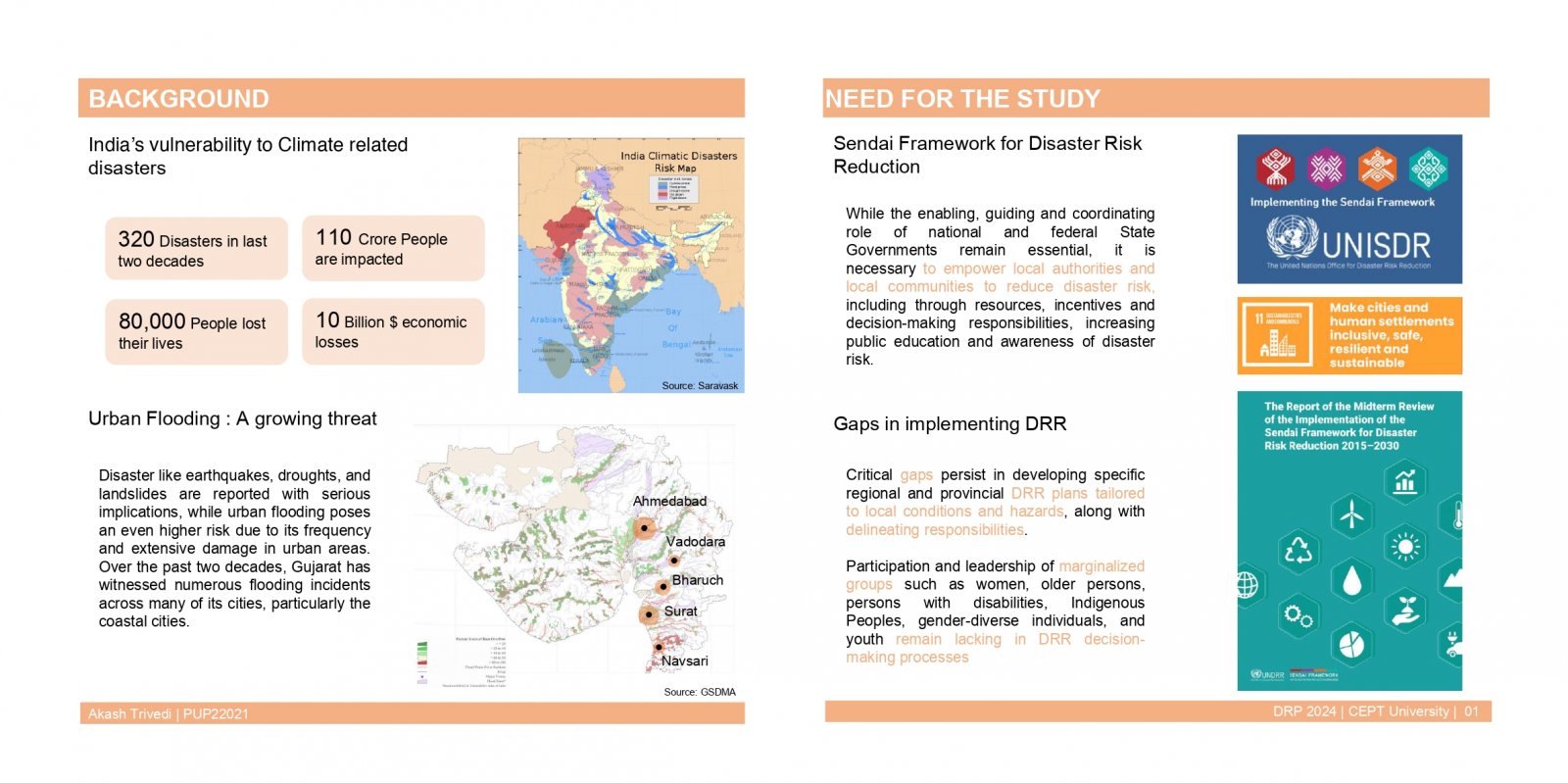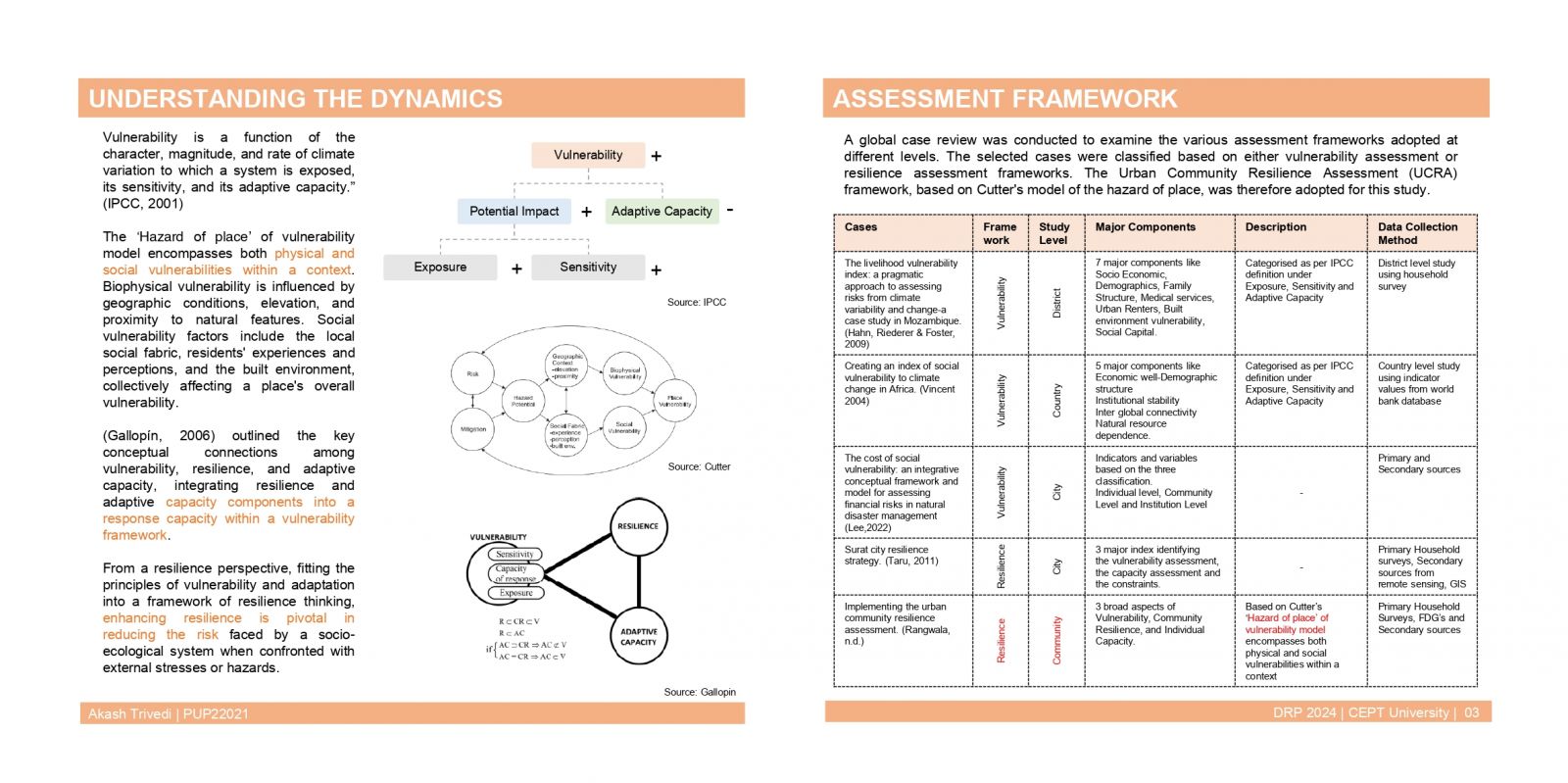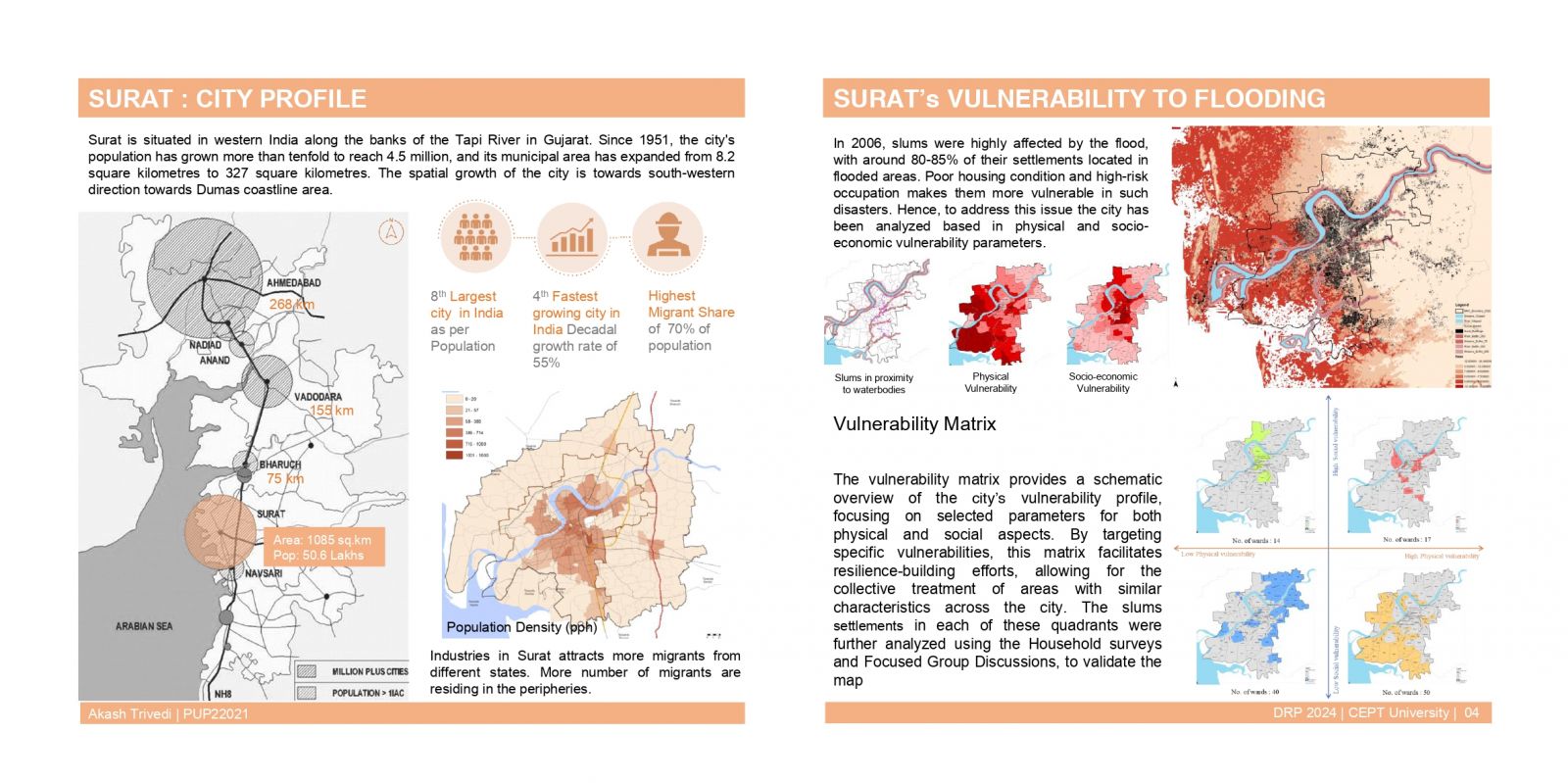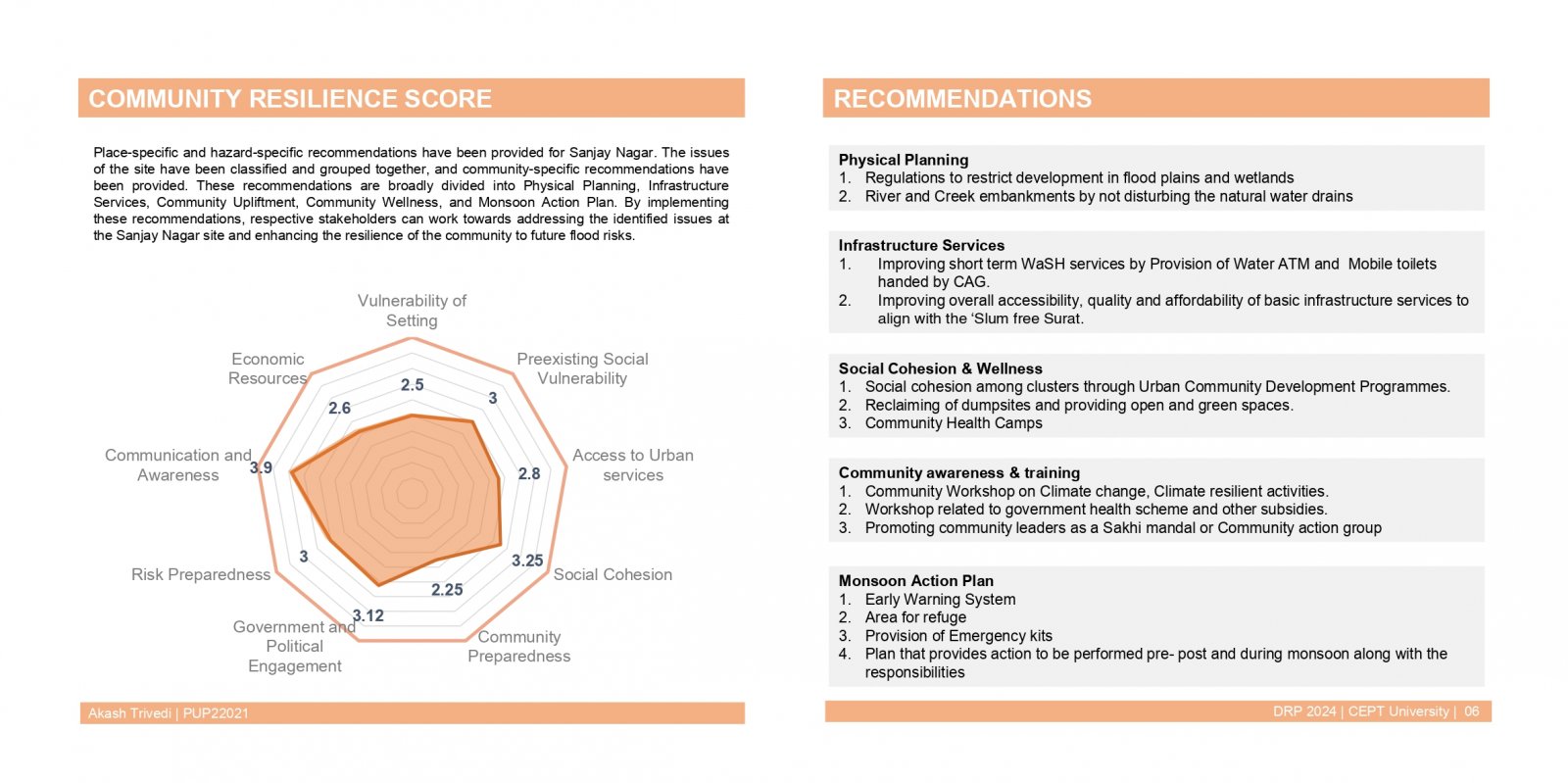Your browser is out-of-date!
For a richer surfing experience on our website, please update your browser. Update my browser now!
For a richer surfing experience on our website, please update your browser. Update my browser now!
India's urban population, expected to surpass 600 million by 2031, faces heightened vulnerability due to poor planning and migration patterns. Inadequate urban infrastructure, encroachments on water bodies, and dysfunctional stormwater systems contribute to the severity of flooding. The government's top-down approach to disaster management is increasingly seen as insufficient, with a growing consensus on the need for community involvement in disaster risk reduction measures. Local authorities and community leaders should invest in adaptable, inclusive, and gender-sensitive strategies to enhance resilience to such disasters. The aim of this research is to propose resilience strategies for mitigating the impact of urban flooding. The objectives include identifying vulnerable areas within the city by analysing both physical and socio-economic vulnerability parameters, adopting a context-specific community resilience framework, and aligning it with the city's resilience strategies. Furthermore, the research aims to assess community resilience based on the adopted parameters and provide recommendations at both the community and city levels to enhance resilience against urban flooding. The Urban Community Resilience Assessment Framework has been adopted for the study. The community specific recommendations are tailored to its unique characteristics and the specific hazards it faces, particularly urban flooding, which can further replicated based on similar urban and social fabric To enhance resilience against floods, Surat must invest in various aspects, including physical planning, infrastructure services, community upliftment, social cohesion, wellness, community awareness, and training, as well as a comprehensive action plan to engage residents in disaster preparedness efforts.





